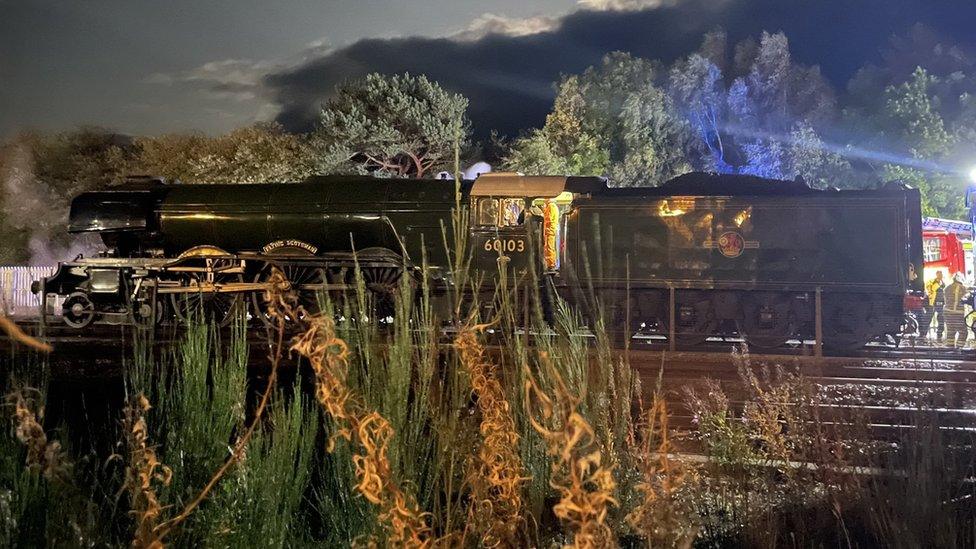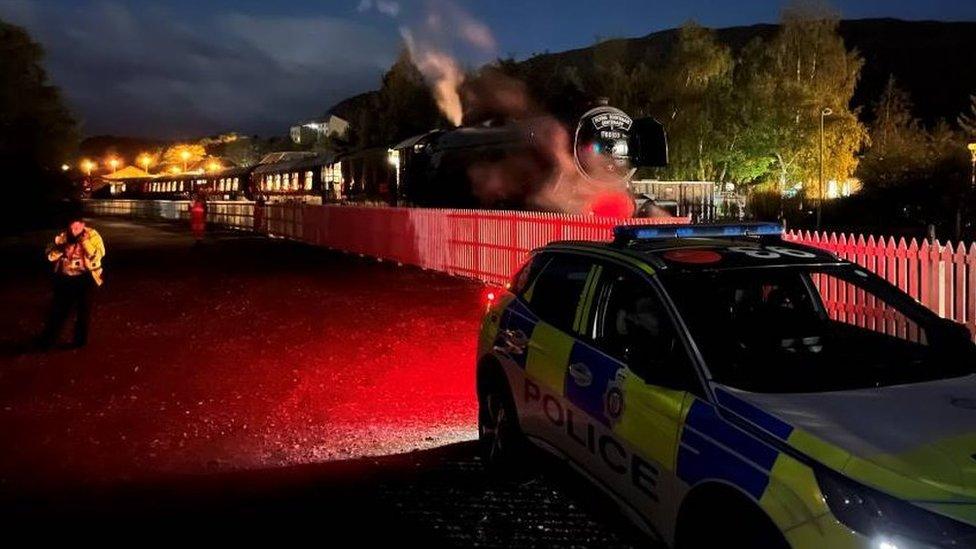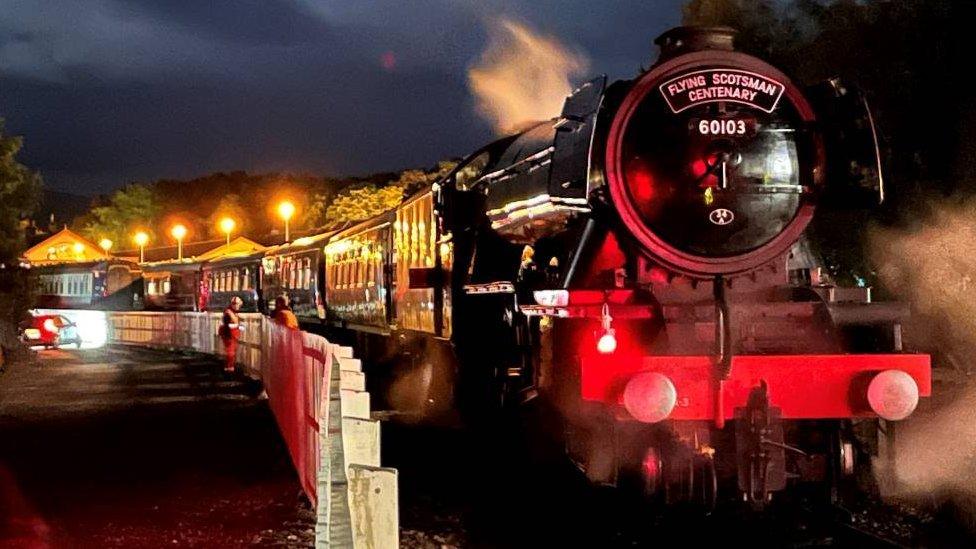Investigation begins into Flying Scotsman collision
- Published

Flying Scotsman was separated from the train carriages after the collision before being taken off the line
A formal investigation has begun into a low speed collision involving the Flying Scotsman that left two people in hospital last month.
The 100-year-old steam locomotive collided with the stationary Royal Scotsman train at Aviemore station in the Highlands on 29 September
The Rail Accident Investigation Branch (RAIB) has now launched an investigation into the accident.
Inspectors said some damage was caused but there was no derailment.
At the time Excursion operators Belmond said a "shunting incident" occurred when Flying Scotsman was being coupled with the company's Royal Scotsman passenger carriages.
The RAIB said it will investigate the accident to determine its causes, injuries, and damages, examining the actions of those involved, staff competence, operational procedures, and underlying management factors.
It said in a statement: "Our investigation is independent of any investigation by the railway industry or by the industry's regulator, the Office of Rail and Road.
"We will publish our findings, including any recommendations to improve safety, at the conclusion of our investigation."

The alarm was raised at about 19:00 on 29 September
Police Scotland has said previously that two people were taken to hospital as a "precaution" and as no criminality was established, it had referred the matter to the RAIB.
Heritage company Strathspey Railway owns the section of the station on which the crash happened.
Flying Scotsman tours were cancelled for a week following the crash and resumed on 7 October after the locomotive was passed as fit for main line operation following a mechanical inspection.
The newly-restored Flying Scotsman was unveiled last year ahead of a series of events to celebrate its centenary.
The 97-tonne locomotive was built in Doncaster in 1923, and is now owned by the National Railway Museum in York.
The steam locomotive was the first in the UK to officially reach 100mph, and was the first-ever service to run non-stop from London to Edinburgh.
As part of its centenary year, the locomotive is visiting railway stations around the UK and has spent time at the National Railway Museum.
Related topics
- Published30 September 2023

- Published30 September 2023

- Published14 October 2022
